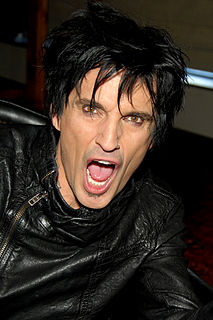A Quote by Marshall B. Rosenberg
When people hear needs, it provokes compassion. When people hear diagnoses, it provokes defensiveness and attack.
Quote Topics
Related Quotes
At its best, fiction cultivates fantasy and compassion; at its worst, memoir provokes schadenfreude and prurience. The ugly truth, I fear, is that many people are drawn to sensational memoirs for the same reason they watch 'The Apprentice': they like to witness actual suffering, before-your-very-eyes humiliation.
I think right now is when we need to hear different voices coming out of all parts of the world. You can't just hear the politicians and the military leaders. You have to hear from the taxi drivers. You have to hear from the painters. You have to hear from the poets. You have to hear from the school teachers and the filmmakers and musicians.
Most people don't take some things into consideration. When they hear an album, they hear the artist or they hear the lyric or they hear the melody. But they don't really think about the environment in which it was recorded, which is so important. It's that thing that determines what the album sounds like.
Suggestion is generally better than Definition. There is a seeming dogmatism about Definition that is often repellent, while Suggestion, on the contrary, disarms suspicion and summons to co-operation and experiment. Definition provokes discussion. Suggestion provokes to love and good works. Defining is limiting. Suggestion is enlarging. Defining calls a halt; Suggestion calls for an advance. Defining involves the peril of contentment: "I am here, I rest." "Thus far," says Definition, and draws a map. "Westward," cries Suggestion, and builds a boat.




































